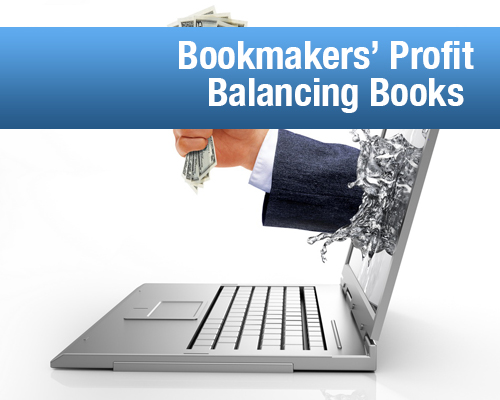To better understand the business it is important to also understand what’s behind the curtains, we’ve talked about how bookies earn, here’s more information about this intriguing subject.
If the stakes are unbalanced then Bookmakers can adjust their odds in order to make the least popular outcome more attractive. Think about it: if you own a shop and you want to sell more of something you lower your price, offering better value to the customer. It is exactly the same in sports betting if you want more volume on a particular team you raise the value on that selection by giving better odds.
Let’s go back to the coin toss and suppose that there was $200 total stake on heads and only $100 on tails. To the Bookmaker this poses a risk that heads could win and the payout would not be covered by their profit made on the (losing) tails bets. Lowering the odds for tails and raising the odds for heads, despite the fact they both have a 50% real chance of winning, can help to create more volume on the tails outcome. And if you consider this scenario as a Bettor it’s a great opportunity to place a bet on tails as you know that in reality it’s got an equal probability of winning to heads.
The same concept applies in a Horse Racing context. Imagine that a top-rated tipster with a large audience recommends a horse to win the race and suddenly the Bookmaker receives an influx of volume on that outcome. This creates an imbalance in the books, heavily weighted on one horse. It makes sense for the Bookmaker to raise the odds of other horses in the race and lower the odds on the tipped horse.
Bookmakers can also reduce volume on one horse by limiting bet sizes. For example, you might request $100 on a horse but will only be allowed a maximum of $50. This approach somewhat undermines the role of the Bookmaker, and it can upset regular punters that have come to expect an outlet for their large stakes. Generally Bookies try to avoid limiting bet requests but on some occasions (with an extremely high volume) they reduce their exposure often because the influx represents genuine knowledge or expertise on the race. In rare cases the heavily backed horse is reported and pulled out of the race due to suspicious betting patterns.
The Role of Exchanges
Betting exchanges changed the landscape for Bookmaker. Traditional Bookmaking methods, such as predicting the odds in-house, are less common– and unnecessary.
Main difference is that whilst Bookmakers set the odds at their discretion and then sell them to Bettors, the exchanges provide a service for users to trade odds with one another. Exchanges make their money through charging commission on winnings and not through an over round. But you’ll note that they are generally synchronized in their place movements.
Nowadays Bookmakers tend to follow the Exchange by offering odds sufficiently below the current Lay value. Therefore Bookies following the exchange using a simple “price tracking“ technique are consistently setting profitable odds.
Price per head simply means that you are able to have a white label gambling website which includes everything that you will ever need to make a success of the venture, for a fixed price for every active player. Try our superior Pay Per Head Service? Sign Up Today and Get 2 Weeks Free.


